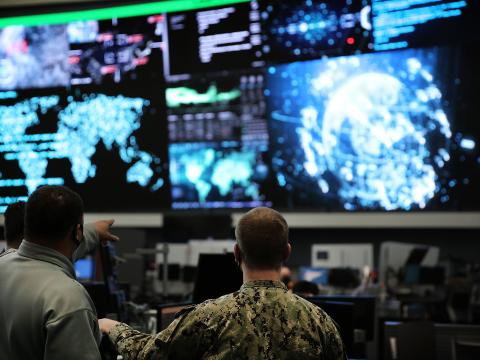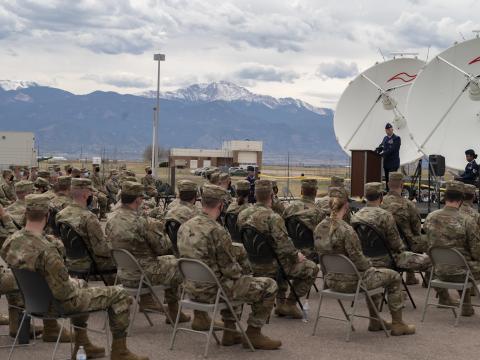Communication panel emphasizes security concerns
The U.S. Army's major communications elements are facing different issues as they try to achieve ever-changing goals amid budgetary, cultural and technological challenges.
Brig. Gen. Susan Lawrence, USA, commanding general, NETCOM/9th Signal Command, emphasized the importance of information security-and how that is not given enough attention. "We are not doing well securing our NIPRNET-it's a sieve," she told attendees at a special panel discussion today. The Army is doing well securing its SIPRNET, but it is not robust enough. The warfighter must understand the security threat, she declared.
And, this problem is going to get worse as data proliferates. Gen. Lawrence warned that, with data expected to double in the next few years, the Army must learn to manage that data smartly and efficiently. The problem is not in the pipes, but in the data flowing through them.
Training signal professionals is becoming more complex each year, and Brig. Gen. Jeffrey W. Foley, USA, commanding general of the U.S. Army Signal Center and Fort Gordon, said that his command's campaign plan is "intricately tied" to other Army information campaign plans. He said that Fort Gordon "is in relentless pursuit of world-class training."
The Communications-Electronics Command (CECOM) Life Cycle Management Command is trying to prepare to move its entire operation concurrent with combat operations overseas. Its commanding general, Maj. Gen. Dennis L, Via, USA, said that the closing of Fort Monmouth provides the command with the ability to rebuild the organization. He predicted process improvements, enhanced integration and more co-located organizations at the new facility being built at Aberdeen Proving Ground.



